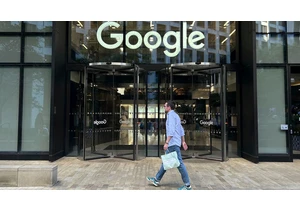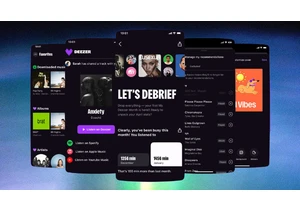At its virtual Connect conference on Thursday, Facebook gave a special presentation to show the world its vision for the metaverse, and announce that it had co-opted half the term as its new company name: Meta. The company says that it’s betting big on what it thinks will be the next big thing in personal computing, a virtual space where people can work, play, or socialize, all through the lenses of virtual reality (VR) headsets or augmented reality (AR) glasses. It expects to spend more than $10 billion on Facebook Reality Labs (henceforth to be known as just Reality Labs), the division leading the development of its mixed-reality hardware and software. It’s said to have more than 10,000 people working on the initiative already. Thursday’s keynote didn’t feature a lot of news about specific products, but instead served as an overview of all the mixed reality R&D going on across the company now. Some of experiences took place within the confines of an Oculus Quest 2 virtual reality headset–though the Oculus brand will fade away–while others took place within real world settings, seen through the lenses of a future pair of Meta augmented reality glasses. Into the Faceverse (I mean Metaverse) After a short speech, Facebook CEO Mark Zuckerberg walked through a series of virtual settings, some of which were fantastical. The first stop was a space called “home.” “Your home is your personal space from which you can teleport to anywhere you want,” Zuckerberg said. His home featured sparse decor, a fireplace, and a view of wilderness outside the windows. Zuckerberg’s avatar, which looked like a cartoon version of himself, then teleported off to a spaceship where some of his friends, including Reality Labs chief and Meta CTO-to-be Andrew Bosworth, who was skinned as a big red robot, waited for him to join a card game. Facebook believes people will choose different kinds of avatars according to tastes and whether or not they want to be anonymous. In the spaceship, one person looked like a video image of her real self. Another looked like a photorealistic avatar (and she could fly). “There will be all kinds of spaces that people make–rooms . . . but also games and whole worlds that you can teleport in and out of whenever you want, Zuckerberg said. Most people think of the metaverse as a place where you can go anywhere and be anything, an idea Zuckerberg acknowledged: “Teleporting in the metaverse will be like clicking a link on the internet–it’s an open standard.” Meta might create such an open standard to allow any user or developer to connect their virtual space to others. But for now, there is no industry standard that might allow the company and another such as Roblox to federate, so that they honored each other’s cryptocurrency and users could teleport easily back and forth between the two digital spaces. Meta’s presentation Thursday would have been more in the spirit of the metaverse had it announced such partnerships. Connection through technology The most interesting use cases and experiences in the presentation happened in mixed reality. They seemed far more believable and human (and less claustrophobic) than the VR spaces. And because of that, they coul ultimately be far more effective at giving far-flung friends or family a feeling of togetherness through technology. In the presentation, we saw a man sitting at a chess board on the street, and across from him was his friend and opponent from across the world, represented as a sort of ghost image (presumably that’s how the friends looked to each other through AR glasses). They were playing chess using a virtual chess board positioned between them. [Screenshot: Meta]Other people played ping pong and basketball in a similar fashion in other real-world settings. The presentation didn’t explain how those ghostly 3D digital images of the people were created. One of the big R&D challenges of augmented reality is creating photorealistic avatars to visually represent users in virtual space. Unfortunately it’s these mixed reality experiences that may be hardest to pull off. The AR glasses required need very powerful processors and lots of sensors, all packed into a normal-sized pair of glasses. Michael Abrash, who leads Meta’s development of AR glasses, says that the company must make research breakthroughs in a dozen different areas before it can make its conception of AR glasses a reality. Why now? Most of the experience Zuckerberg and others showed in the keynote don’t yet exist. Some of them are closer to being ready for market than others. The mixed reality stuff is years away. Is it just a coincidence that Facebook began talking about so much about the metaverse–and even changed its name to Meta–during a year the company has been in increasingly hot water in the press and in Washington DC? Some people think not. “The name change from Facebook to Meta [is] a blatant attempt to distance Mark Zuckerberg’s company from growing outrage over the harm it is causing to democracy in the US and around the world,” says Paul Barrett, deputy director of the NYU Stern Center for Business and Human Rights. “Zuckerberg and his lieutenants can’t shed the Facebook albatross with a clever brand adjustment. It’s past time for meaningful self-regulation combined with carefully designed government oversight.” If the most aggressive scenarios involving government intervention to reign in Facebook–I mean Meta–actually take hold, a lot more than its name might have changed by the time its metaverse vision has a chance at becoming reality.
Connectez-vous pour ajouter un commentaire
Autres messages de ce groupe

Google will confront an

Instagram has begun testing AI-powered technology designed to proactively identify accounts it suspects belong to teens—even if the user has listed an adult birthdate—and place them under special

Behind the curtain of generative AI breakthroughs and GPU hype, a quieter transformation is taking place. Data center architecture and its prowess have become a fierce battleground as AI models ex

Amid the video podcast boom, Netflix is making its own move into the space.

If real Easter eggs aren’t your thing this weekend, you may find hunting for digital ones more enjoyable. And there are some cool ones to find at your fingertips, provided you have an iPhone or Ma

With music streaming, users have gotten used to being at the mercy of algorithms. But French music streamer Deezer is making it easier for its subscribers to make the algorithm work for them.

Trying to get from point A to point B? If only it were that simple! With any manner of travel these days, you’ve got options: planes, trains, buses, ferries, and beyond. And finding the best
